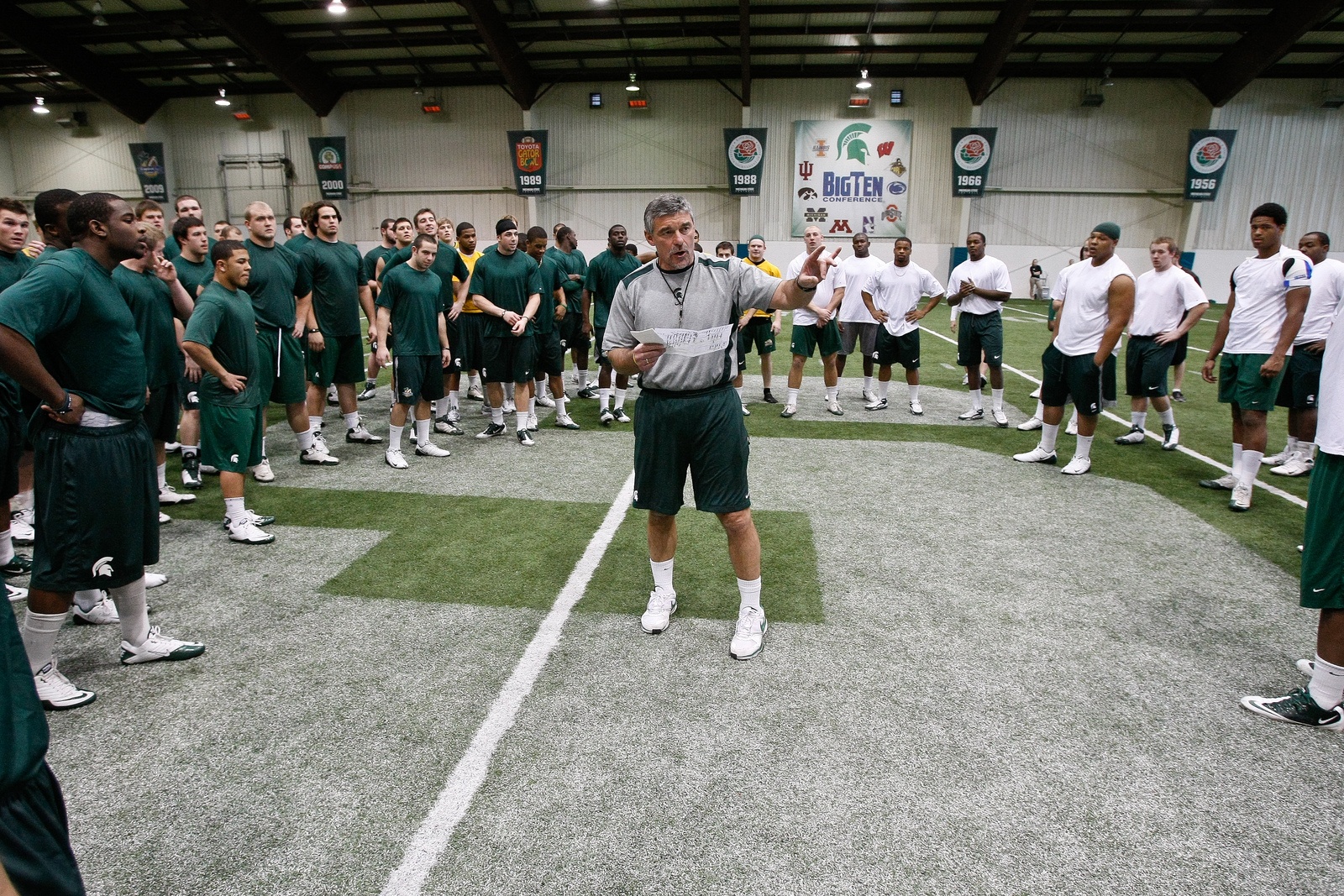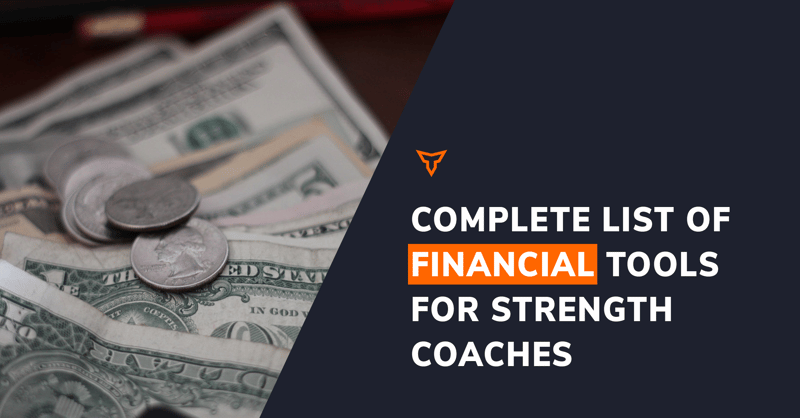What is the Monetary Value of a Strength Coach
Can you imagine getting a $50,000 raise? Yep, $50,000 in addition to your salary.
For comparison, that is about $8,000 less than the median American income according to a 2017 Business Insider article. The highest paid college strength coach in the nation in 2017, Chris Doyle at the University of Iowa, got exactly that to bring his strength and conditioning coach salary to $725,000. In 2022, Robert Glass at Oklahoma football made headlines with a $1 million dollar contract. As of 2023, he and Ben Herbert at Michigan football hold the title as two of the highest paid strength and conditioning coaches in the nation, with Ohio State football's Mickey Marotti coming in third with an annual salary of around $862,000.
While some people can’t believe that how much this coach is making for basically teaching people how to pick things up and put them down. I say "good for him;" Coach Doyle is employed by people that see his real value and are willing to pay him for it. Not everyone has that luxury.
A few years back, the Fair Labor Standards Act had an amendment that was introduced to help salaried employees who routinely worked more than 40 hours a week. Employers would have a choice to raise these employees’ salaries to $47,476, pay them an overtime wage if they worked more than 40 hours a week, or cap their schedule at 40 hours a week. There was a brief glimpse that strength coaches, athletic trainers, and other support groups would start getting compensated properly for the value they brought to an athletic department. Then I got an email... Coaches would be grouped in with teachers which made them exempt in the Fair Labor Standards Act for the minimum salary standard. Great news!
Yeah. Great news. Once again, coaches (and teachers) were close taking a step forward to getting a wage that was commensurate with their experience and education. Oh well, time to get back to the grind. On my way into work, I had a bit of an epiphany. Do I ever let athletes settle for just doing the minimum? My body as I acted like I just took a bite from a bar of soap. Minimum. Ish, I have a hard time even saying the word, but for a while I was advocating for highly educated and experienced coaches being OK with having the minimum. If there was a way that strength coaches can show what value we bring to athletic departments then maybe we would start to see a shift in how coaches are employed and not be willing to accept the minimum. But we have a big problem. How do you even begin to define the ambiguous role of a strength coach on a position description?
Look around at some of the job postings for a strength coach. They all revolve around a handful of skills you expect strength coaches to have, but I have yet to see anything that reflects what other skills are needed. If you are like me, then you work with every single athlete that a school has. For me, that’s right around 375 student-athletes from 15 sports. Our staff averages 3 hours and 15 minutes of contact time working with athletes each week for 32-24 weeks of the academic year. In all that time, you can’t help to make relationships with these athletes. When I am not on the floor coaching, more and more of my time is spent talking to these athletes about all the issues they are going through. I think athletes open up and talk to strength coaches about things because of the relationships we build with the athletes and that we don’t have a say about playing time. My proof of this is that over the last two years I was the first person that was told about: unplanned pregnancies, terminal illness or death of family members, coming out to their family, suicidal thoughts, drug or alcohol abuse, police tickets, and life changing accidents. When has anything like these skills ever been on a job posting?
The same day the media broke the news about Coach Doyle’s raise, I had two different athletes in my office. One was there because his family at home decided the student-athlete was not smart enough for college, not good enough to play college sports, and not worth the family’s time and monetary investments anymore. Wow, imagine that for a second. But, that was not the hardest part of the conversation. The athlete then started talking about how they would not be alive to see August because "what’s the point when no one else supports or believes in them but 'Only you, Coach.'” Sure, by law I am mandated to report this and living a good and moral life would compel any coach to act, but there is not a lot of training to prepare you for a situation like that. Just like on an airplane you are legally obligated to act during an emergency exit of the plane if you are sitting in the exit row, there is a big difference between knowing what to do and actually having to do it. I’m happy to say that this athlete was able to get some help and I had lunch with them in August.
That was the morning. In the afternoon, I was greeted by another athlete who had a choice to make: Either have a surgery that would end their career in order to fix an undisclosed injury in their shoulder or risk permanent nerve damage and possibly losing the use of use of their arm. This would be an easy choice for me but not so for the athlete who has to choose giving up the sport that they have sacrificed their time, money, sweat, and relationships for over the last 12 years. I asked them who else have you talked to about this, parents, sport coaches, athletic trainers, or teammates? I heard the exact same thing from this morning “Only you, Coach.”
That was a hard day, and thankfully not every day is like that one. Yet, I would expect that I’m not alone and almost all coaches would have similar stories. Athletes still have a hard time even beginning to think about talking to a counselor or psychologist about their problems because of the social stigma that type of help has. But talking to a strength coach? That’s just easy for them because we get it. We’re involved in athletics, most of us were former athletes, and we already have a relationship with the athletes. Being there to help develop the physical, mental and emotional strength or resiliency of athletes is the true value of having a professional strength coach staff on campus, but it remains unseen from the people that can have the greatest impact on our professional employment.
Well, that needs to change. Like all meaningful change, each person has to initiate the change themselves. Have conversations on your campus about what is happening in in your career and within our profession with the athletic director, human relations department, even the chancellor or president of the school. Proudly display your education diplomas and your certification credentials just like what you see in a doctors or lawyers office. Go to those optional meetings and (as hard as it is) make sure you have a change of clothes so you don’t look or smell like you just worked out. Take the time for continuing education opportunities in and outside of the strength and conditioning field. These are some of the easy things each one of us can do on our own campus to be seen as a valuable professional and help advance this profession. I understand not every institution can compete with massive amounts of money that is being spent at the high levels of division one sports (mine sure can’t), but being seen as a professional and valuable asset for the athletics department is the only way we can get past being at the minimum.
Subscribe to our blog
Subscribe to receive the latest blog posts to your inbox every week.
Related posts

Why You Need to Hire an Intern (And How to Do It)

How to Avoid Failed Projects as a Gym Owner


